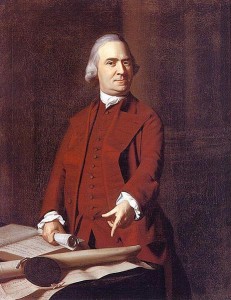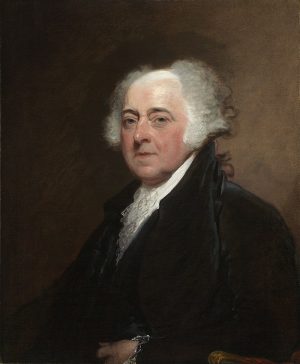Samuel Adams was a second cousin to the second president of the United States, John Adams. He was one of the Founding Fathers and was a politician in Massachusetts, where he was born. Samuel was a graduate of Harvard University and one of the major figures in the American Revolution.
Samuel and John Adams were both powerful names in connection with the Revolution that started in the Massachusetts towns of Lexington and Concord. They were cousins, but people called them the Adams brothers. Samuel was the son of a brewer, and although he did not achieve success as a brewer and businessman, he turned out to be a great politician. Early in his public service career, he worked as a tax collector. This made him vulnerable to suspicion of being a British agent. Samuel may have sharply sensed this, and he forged good relationships with the businessmen of Boston and did excellent work through his knowledge of the tax codes. Along with his cousin, he was a leader of the people, a leader who often let himself be seen by those he wanted to lead and often made speeches in public.
In 1765, Samuel was elected to the lower house of the Massachusetts Assembly and served in his capacity until 1774. He was a friend of the political philosopher Thomas Paine, and he upheld the republican system of government.
After serving in the Massachusetts Assembly for many years, he was appointed as a member of the council in Boston. After this, he was chosen to join the Continental Congress as a representative. While serving in Congress, his colleagues were impressed by his oratorical prowess and intense desire for independence from Great Britain. Samuel signed the Declaration of Independence in 1776. Five years later, he went back home to Massachusetts and led the state in drafting a constitution. He was eventually elected as governor in 1794 and was re-elected year after year until 1797 when he was forced to retire because of involuntary muscle tremors.
Because of his illness, he was unable to write in the last years of his life. Samuel died on the 2nd of October, 1803.
John Adams wrote of his cousin, Samuel, as a man who had “the most thorough understanding of liberty.”

